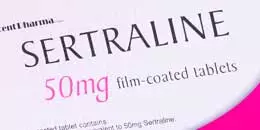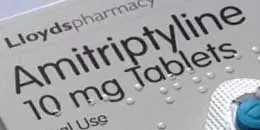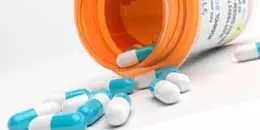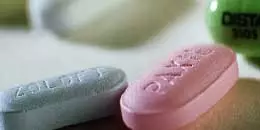What kind of drugs are antidepressants, is it possible to mix alcohol with antidepressants?
Antidepressants are the group of medicines capable to relieve (and sometimes remove) such symptoms of depression as anxiety, constant fatigue, low self-esteem, despair and even suicidal thoughts. Help and support from a psychotherapist, relatives and friends are very valuable and highly recommended in such a state, however, some drugs are also necessary. You will hardly be able to get out of depression without taking pills. This article provides an overview of what antidepressants are, how they work and when they were discovered. Having read this paper, you will be able to understand why your physician has prescribed you this or that drug with a complicated name.
In a few decades antidepressants replaced all other types of drugs used with depression, and they are now considered to be one of the greatest discoveries of the twentieth century.
This site contains descriptions of different popular antidepressants as well as the information about taking alcohol together with these pills.
Which antidepressant is the right one for you?
No pundit can predict it. It's a matter of trial and error until the right drug or combination of drugs is found for you. The search can take a long and sometimes painful way. This is a sad fact, but it cannot be bypassed. Less than half of the patients get better on the first try. You can also be not lucky. Please understand that this is not because of a low qualification of your doctor. Help him or her find your drug. Try to be patient!

Buy Sertraline 50mg 100mg Online UK
Sertraline is one of the drugs called selective serotonin reuptake inhibitors (SSRIs). Most commonly this medicinal product is used to treat obsessive-compulsive disorder (OCD), depression, and panic disorder.

Buy Amitriptyline 10mg 25mg Online UK
Amitriptyline is a tricyclic antidepressant also having a pronounced sedative, hypnotic and anti-anxiety effect. Amitriptyline helps in eliminating night urinary incontinence and reducing appetite.
How long will it take me to get rid of depression with antidepressants?
One or two pills will have no effect on the concentration of serotonin in your brain and, correspondingly, on the symptoms of depression. Not less than 2-3 weeks usually pass until you feel some positive effect. Keep in mind that the treatment time can vary individually to a large extent. In some cases a stable result can come only in a few months.
Groups of antidepressants
Modern antidepressants can be split up into three groups according to the effect they have on the biochemical processes in our brain. There are also antidepressants that do not belong to any of these groups. Most commonly used antidepressants are classified as follows:
- Tricyclic antidepressants (TCAs)
- Selective serotonin reuptake inhibitors (SSRIs)
- Selective serotonin noradrenaline reuptake inhibitors (SSNRIs)
TCAs are considered to be the first generation antidepressants.
SSRIs and SSNRIs are the second generation antidepressants.

Tricyclic Antidepressants (TCAs)
Synthesized in the 50s of the last century, they have been used for a long time, and their effects is studied better compared with the drugs of other groups. Their structure is based on a triple carbon ring; hence is the name "tricyclic".

Selective Serotonin Reuptake Inhibitors (SSRIs)
SSRIs prevent the destruction of such mediators as serotonin and noripinephrine which affect our mood. SSRIs examples are phenyuzine, tranylcypromine and isocarboxazide.

Selective Serotonin Noradrenaline Reuptake Inhibitors (SSNRIs)
SSNRIs are the most recent class of antidepressants, and they have fewer side effects compared to the drugs in the two previous groups.

Other modern antidepressants
There are antidepressants that do not belong to any of the three groups, because they differ from them both in chemical composition and in the mechanism of action. These are, in particular, Wellbutrin, Desirel and others
How do antidepressants work?
There’s no point in going into details on how information is passed from one neuron to another in our brain. It is enough to say that this is done by special hormones called neurotransmitters or mediators, the most important of which are serotonin, norepinephrine and acetylcholine. Serotonin is especially significant for feeling the joy of life. Depression decreases the concentration of these hormones, and antidepressants contribute to bringing it back to norm. Various groups of antidepressants do it in different ways.
Rumors and prejudices
There are so many prejudices against antidepressants. One can hear that “antidepressants can drive you crazy,” or that “you will be hooked on the pills for life,” or that “these drugs are for the weak only” and what not. We have neither time, nor desire to prove the absurdity of such rumors. Just take it for granted that depression is a hard disease which requires serious treatment including pharmacologically assisted methods. Antidepressants can help reduce pain, like aspirin with a cold. Only not physical pain but spiritual in this case. And one more thing: modern antidepressants do not cause addiction regardless of the duration of treatment. By the way, about 65 percent of the US population are taking antidepressants and tranquilizers these days. That’s it.
Some history
Antidepressants were discovered not long ago: in the early 50's of the last century. Before then, doctors prescribed, in order to improve the mood, rather exotic substances such as opium and its derivatives, caffeine or ginseng. They caused feelings close to euphoria, however, they were not able to combat a real depression.
In the first half of the 20th century doctors and biochemists spent decades of concerted efforts to synthesize a remedy against “black melancholy” but to no avail. Antidepressants were “discovered” quite accidentally. Nathan Klein from Rockland State Hospital was trying to find the location of human "ego" with the help of drugs. Klein noticed that some of the patients to whom he had given Iproniazid suddenly stopped being worried about their problems. Around the same time in Germany, Ronald Kuhn discovered psychotropic properties of Imipramine, also by accident.

